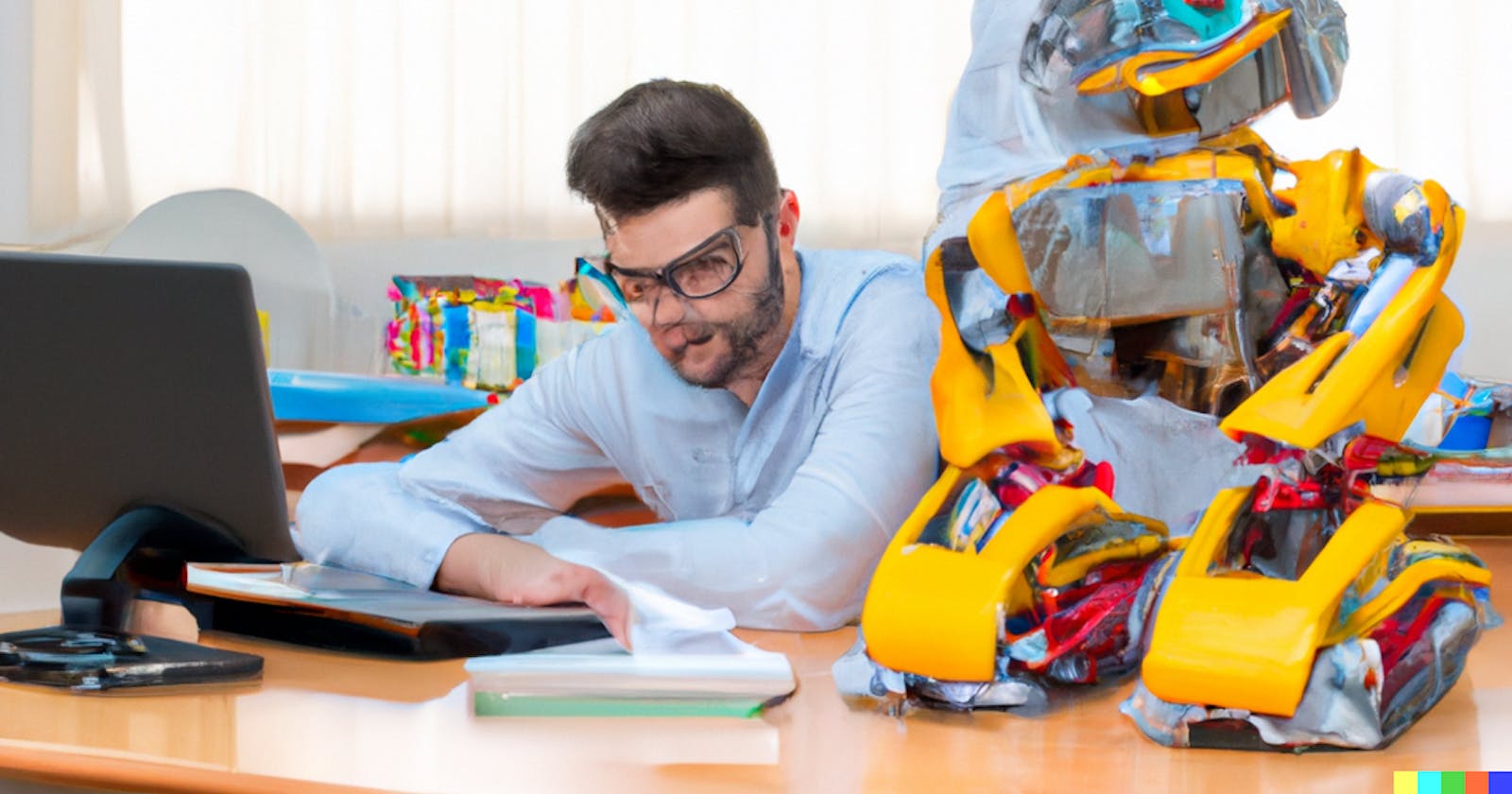I Want to Build a Learning Companion for New Developers Using AI
A project based on Artificial Intelligence new tools
TL;DR: Some ideas on building a friendly intelligent companion.
Many people believe that artificial intelligence (AI) is only for big businesses and tech conglomerates.
We can use AI can be used for a variety of purposes, including helping people learn to program or creating this article cover.
Artificial Intelligence can be a great companion for those wishing to learn to program, as it can provide personalized assistance and feedback.
One of the most difficult challenges can be getting started.
What if there was a way to have a personal guide to help you through the process?
This is where an Artificial Intelligence (AI) companion could come in handy.
The reasons
There are many reasons why someone might want to learn to program.
They might want to build their website or create a new app or avoid losing their job.
They may want to enter into the exciting field of AI and machine learning.
Whatever the reason, learning to code can be challenging.
That's where an AI companion can help.
An AI companion can provide personalized help and support as you learn to program.
It can answer your questions, provide resources, and give you feedback on your progress and code quality.
It can also warn of Code Smells, and bad design decisions and suggest improvements.
An AI companion can keep you motivated and on track by setting goals and providing reminders.
Different Approaches
There are a few different ways that an AI companion could go about teaching programming.
It could provide step-by-step tutorials that the user can follow.
The companion could give tips and tricks based on the user's current level of understanding.
it could be a sounding board for the user to practice their programming skills.
State of the Art
Many AI companions are available, ranging from simple chatbots to more sophisticated virtual assistants.
Some AI companions are even designed specifically for programming.
These companions are like having a personal tutor or coach by your side, providing real-time feedback and helping you to debug your code.
They can also offer suggestions on how to improve your code or make it more efficient.
And because they’re powered by AI, they can keep getting smarter the more you use them.
There are a few different AI companions on the market designed for programming.
Kite uses machine learning to provide you with instant coding assistance.
It can help you with everything from autocompleting your code to finding the right documentation for the API you’re using.
Another AI companion designed for programming is called DeepCoder.
DeepCoder uses a technique called program synthesis to help you with your coding.
it can write code for you based on the inputs and outputs you give it.
If you’re struggling to write a particular piece of code, DeepCoder can help you by writing it for you.
If you're looking for a more general AI companion, there are many options available.
These include Amazon's Alexa, Google Assistant, and Apple's Siri. Each of these assistants can provide support and assistance as you learn to program.
Empathy
There are many things to consider when building an AI companion, such as its personality, how it will interact with the user, and its code quality skills.
One of the most important aspects is its ability to teach programming.
Learning programming can be difficult and frustrating at times, so it's important that the AI companion is there to encourage the user and help them through the tough spots.
We need to decide what personality we want it to have.
Also how we want it to interact with the user.
Finally, we need to make sure it has the skills necessary to teach programming.
The plan
Many coding assistants suggest code recipes for common problems.
They are based on semi-public training sets.
As with most artificial intelligence solutions, the training set biases the solutions.
When training with bad quality code, full of code smells with coupling and premature optimization, They suggest solutions with the same poor quality standards.
We can train a transformer model with refactoring rules to teach it how to improve the code.
We can use a cost function related to cyclomatic code complexity, coupling metrics, lines of code, and many standard quality metrics.
A good idea is usually a combination of previously unrelated known ideas.
For example, a suitcase with wheels is an amazing idea invented several centuries after the suitcase and several millennia after the wheel.
The article's thesis is to build yet another code assistant based on better training sets and transform bad code into a good one.
Credits
Photo by DALL-E

